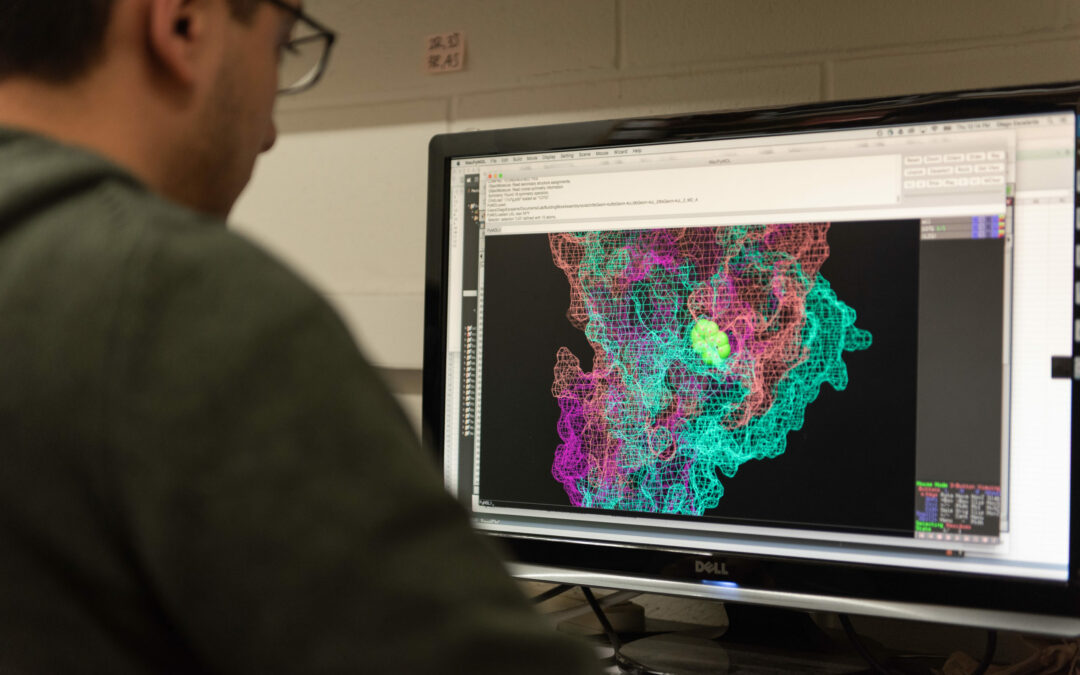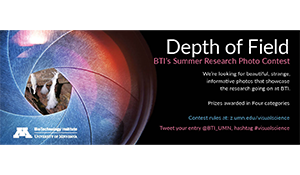BTI publications: January 2024
BTI Publications January 2024
Elias, M. H., Sompiyachoke, K., Fernández, F. M., & Kamerlin, S. C. L. (2024). The ineligibility barrier for international researchers in US academia. EMBO Rep. https://doi.org/10.1038/s44319-023-00053-x
Haq, I. U., Christensen, A., & Fixen, K. R. (2024). Evolution of. Appl Environ Microbiol, e0210423. https://doi.org/10.1128/aem.02104-23
Heili, J. M., Stokes, K., Gaut, N. J., Deich, C., Sharon, J., Hoog, T., . . . Adamala, K. P. (2024). Controlled exchange of protein and nucleic acid signals from and between synthetic minimal cells. Cell Syst, 15(1), 49-62.e44. https://doi.org/10.1016/j.cels.2023.12.008
Hozalski, R. M., Zhao, X., Kim, T., & LaPara, T. M. (2024a). On-site filtration of large sample volumes improves the detection of opportunistic pathogens in drinking water distribution systems. Appl Environ Microbiol, e0165823. https://doi.org/10.1128/aem.01658-23
Huang, M., Rueda-Garcia, M., Harthorn, A., Hackel, B. J., & Van Deventer, J. A. (2024). Systematic Evaluation of Protein-Small Molecule Hybrids on the Yeast Surface. ACS Chem Biol. https://doi.org/10.1021/acschembio.3c00524
Lee, K. H., Distefano, M. D., & Seelig, B. (2023a). Facile immobilization of pyridoxal 5′-phosphate using p-diazobenzoyl-derivatized Sepharose 4B. Results Chem, 6. https://doi.org/10.1016/j.rechem.2023.101044
Li, J., Wang, Y., Distefano, M. D., Wagner, C. R., & Pomerantz, W. C. K. (2024). Multivalent Fluorinated Nanorings for On-Cell. Biomacromolecules. https://doi.org/10.1021/acs.biomac.3c01391
Medina-Chávez, N. O., Torres-Cerda, A., Chacón, J. M., Harcombe, W. R., De la Torre-Zavala, S., & Travisano, M. (2023b). Disentangling a metabolic cross-feeding in a halophilic archaea-bacteria consortium. Front Microbiol, 14, 1276438. https://doi.org/10.3389/fmicb.2023.1276438
Phan, T., Ye, Q., Stach, C., Lin, Y. C., Cao, H., Bowen, A., . . . Hu, W. S. (2024). Synthetic Cell Lines for Inducible Packaging of Influenza A Virus. ACS Synth Biol. https://doi.org/10.1021/acssynbio.3c00526
Robinson, A. O., Lee, J., Cameron, A., Keating, C. D., & Adamala, K. P. (2024). Cell-Free Expressed Membraneless Organelles Inhibit Translation in Synthetic Cells. ACS Biomater Sci Eng. https://doi.org/10.1021/acsbiomaterials.3c01052
Schreiber, M., Wonneberger, R., Haaning, A. M., Coulter, M., Russell, J., Himmelbach, A., . . . Waugh, R. (2024). Genomic resources for a historical collection of cultivated two-row European spring barley genotypes. Sci Data, 11(1), 66. https://doi.org/10.1038/s41597-023-02850-4





















